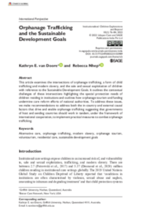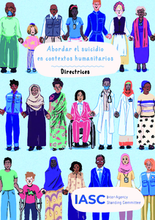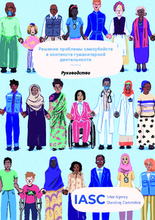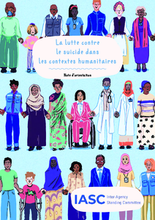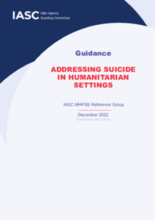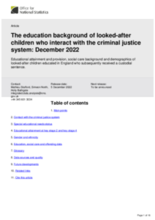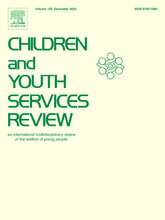Displaying 21 - 30 of 498
This study explored the lived experiences of mothers/fathers who secretly abandoned their children in Ethiopia.
This article examines the intersections of orphanage trafficking, a form of child trafficking and modern slavery, and the sale and sexual exploitation of children with reference to the Sustainable Development Goals. It outlines the contextual challenges of these intersections highlighting the special protection needs of children residing in institutions and outlines how orphanage tourism and funding undermine care reform efforts of national authorities.
本指导说明旨在支持项目实施者、协调员和其他人道主义行为者解决人道主义环境中的自杀和自残问题。 它汇集了范围广泛的方法、工具、参考资料和案例示例。 它是一种实用而简洁的资源,适用于所有类型的紧急情况、组织和部门。
Esta nota de orientación tiene como objetivo ayudar a los implementadores de programas, coordinadores y otros actores humanitarios a abordar el suicidio y las autolesiones en entornos humanitarios. Reúne una amplia gama de enfoques, herramientas, materiales de referencia y ejemplos de casos. Es un recurso práctico y conciso aplicable a todo tipo de emergencias, organizaciones y sectores.
تهدف هذه المذكرة التوجيهية إلى دعم منفذي البرنامج والمنسقين والجهات الفاعلة الإنسانية الأخرى في معالجة الانتحار وإيذاء النفس في الأوضاع الإنسانية. إنه يجمع مجموعة واسعة من الأساليب والأدوات والمواد المرجعية وأمثلة الحالة.
Это руководство направлено на оказание поддержки исполнителям программ, координаторам и другим гуманитарным организациям в борьбе с самоубийствами и членовредительством в гуманитарных условиях.
Cette note d'orientation vise à aider les responsables de la mise en œuvre des programmes, les coordinateurs et les autres acteurs humanitaires à lutter contre le suicide et l'automutilation dans les contextes humanitaires.
This guidance note aims to support programme implementers, coordinators, and other humanitarian actors in addressing suicide and self-harm in humanitarian settings.
This analysis conducted by the UK Office for National Statistics explores the education and social care background of care-experienced young people in England who were imprisoned at any point up to the age of 24 years.
Using national child welfare data, the authors examined a subset of foster children (7%) who entered care due to parental incarceration in the U.S.


